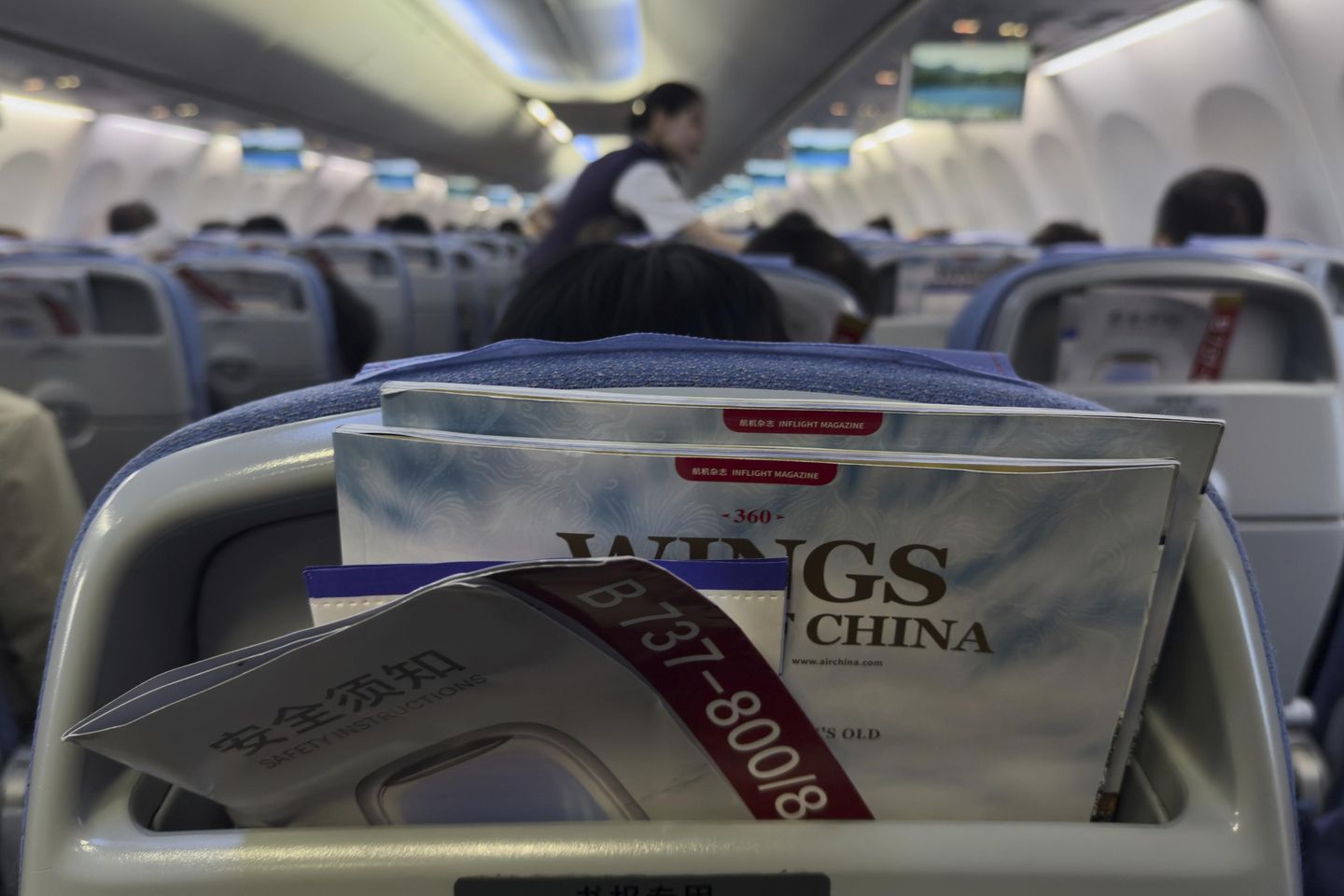
President Trump on Thursday said trade negotiations are unfolding between the U.S. and China but refused to say who was involved, adding to confusion around the tariff spat after Beijing said no such talks are underway.
Confronted by China’s denial, Mr. Trump said, “They had a meeting this morning.”
“It doesn’t matter who ’they’ is. We may reveal it later, but they had meetings this morning, and we’ve been meeting with China,” the president said during a White House meeting with Norwegian leaders.
Hours earlier, China’s Foreign Ministry said reports of talks or an imminent deal were untrue.
“For all I know, China and the U.S. are not having any consultation or negotiation on tariffs, still less reaching a deal,” ministry spokesman Guo Jiakun said. “China’s position is consistent and clear: We will fight — if fight we must. Our doors are open, if the U.S. wants to talk. Dialogue and negotiation must be based on equality, respect and mutual benefit.”
The conflicting narratives are the latest wrinkles in a bitter trade stalemate between the world’s largest economies.
China slapped a 125% tariff on U.S. goods in retaliation for Mr. Trump’s “Liberation Day” trade plan, which imposed a blanket 10% tariff on all imports and heftier levies on countries that sell plenty of products to American consumers but don’t buy nearly as much from U.S. producers.
Mr. Trump increased U.S. tariffs on most Chinese goods to 145%, with exceptions for certain electronics.
Dozens of other nations are negotiating over trade barriers during a 90-day pause in Mr. Trump’s “reciprocal” tariffs. That includes Norway, which faces a 15% tariff under the White House plan.
The U.S. had a $2 billion trade deficit with Norway in 2024, though Mr. Trump said Thursday he wasn’t looking for much from the European ally.
“If they want to give us some additional concessions, that’s OK,” Mr. Trump said. “You can’t do much better.”
Treasury Secretary Scott Bessent said the U.S. made progress in talks with South Korea and would discuss the technical terms of a deal by next week.
“We may be moving faster than we thought,” Mr. Bessent said. “The South Koreans came early, they came with their A-game.”
Mr. Trump said talks with all nations will continue, though his patience won’t be infinite.
“We are going to, at some point, just set prices for deals. Some will be tariffed,” Mr. Trump said.
The situation with China is more complicated. Neither side seems willing to back off their tariffs first.
Dozens of other nations are negotiating over trade barriers, but the U.S. and China are locked in a high-stakes standoff.
Neither side seems willing to back off their tariffs first.
The White House said it would be willing to lower tariffs, but only in concert with Beijing as part of negotiations.
Mr. Bessent on Wednesday said there is a chance for a “big deal” with China if it moves away from its export-heavy economy that floods the world with cheap goods.
The same day, Mr. Trump said he was looking to “have a fair deal with China.”
China, however, wants the U.S. side to lower its tariffs unilaterally.
“If the U.S. truly wants to resolve the issue, it should heed rational voices from the international community and domestic stakeholders, completely abolish all unilateral tariffs on China, and find a solution through equal dialogue,” Commerce Ministry spokesman He Yadong said.
The impasse is beginning to ripple through the economy.
Boeing CEO Kelly Ortberg told CNBC that China stopped taking deliveries of its aircraft because of the trade war.
Mr. Trump, writing on Truth Social, said Boeing should “default China for not taking the beautifully finished planes that China committed to purchase.”
“This is just a small example of what China has done to the USA, for years. … And, by the way, Fentanyl continues to pour into our Country from China, through Mexico and Canada, killing hundreds of thousands of our people, and it better stop, NOW!” Mr. Trump wrote.
The National Retail Federation said retailers rushed cargo into U.S. ports to get ahead of tariffs. Now that levies are starting to bite, it expects shipments to drop sharply.
“Potential impacts could include less inventory and fewer choices for consumers as well as increased prices, especially at small retailers,” said Jonathan Gold, vice president of supply chain and customs policy at NRF. “However, the effects will likely become tangible in the coming months as shipments that are subject to the higher tariffs begin to arrive and make their way through retail inventory. The uncertainty around the tariffs is challenging for businesses, especially for small businesses that are currently preparing for critical winter holiday orders.”












